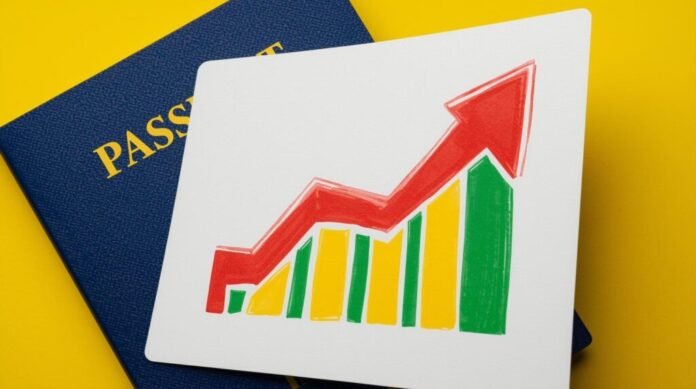US H-1B Visa Fee Hike: A Double-Edged Sword for Jamaica’s Talent Pool
Amid rising concerns about the Donald Trump administration’s recent decision to impose a staggering US$100,000 application fee for employers hiring foreign professionals through the H-1B visa program, immigration experts are sounding the alarm. Attorney Dayle Blair believes this move could backfire on the US, potentially driving Jamaica’s skilled workforce to other countries eager to attract talent.
Blair highlights that nations like Canada and China are ramping up their efforts to lure global talent, particularly in fields like information technology, engineering, healthcare, and education. “China just announced a K-Visa to compete with the US,” Blair noted. “While the US may seem like a strong option, this could lead to a talent drain that’s hard to replace.”
The Rising Cost of Opportunity
Effective September 21, 2025, US employers looking to hire new applicants under the H-1B specialized program will face a jaw-dropping fee increase from US$5,000 to US$100,000. This 20-fold jump raises eyebrows, especially as the US government pushes for companies to hire more local talent. But Blair warns that this could stifle innovation and growth in American businesses.
“Foreign professionals bring a wealth of experience and skills that the US often doesn’t have to pay for in terms of education,” he explained. “Many are trained overseas and can work for significantly less than their American counterparts. This fee could deter the very talent that fuels US innovation.”
A Tough Road for Small Businesses
Immigration attorney Nadine Atkinson-Flowers adds another layer to the conversation, pointing out that while larger companies may absorb the new costs, smaller businesses could struggle. “Employers now have to weigh whether they can afford this fee,” she said. “For smaller companies that previously hired one or two foreign workers, this could be a deal-breaker.”
The announcement of the fee increase has sparked anxiety among employers and employees alike. “When the news broke, many were frantic, worried they wouldn’t be able to return to the US without paying this fee,” Atkinson-Flowers recalled. “Some even rushed back to the States, fearing they’d be locked out.”
Remote Work: A Double-Edged Sword
Blair also pointed out that remote work could offer a workaround for US employers. However, he raised concerns about data security and client permissions. “With the internet, you can work from anywhere, but companies are often hesitant to send sensitive information overseas,” he said. “They need client approval to share data, which complicates things.”
A Cautionary Tale for Jamaicans
As the situation unfolds, Jamaicans are urged to be vigilant against scams that often arise during periods of immigration uncertainty. Atkinson-Flowers warns, “This is when people get scammed the most. Always look for credible sources and don’t part with your money easily.”
In a world where opportunities are shifting, the question remains: will the US’s hefty new fee deter the talent it desperately needs, or will it push skilled Jamaicans to seek greener pastures elsewhere? As countries like Canada and China roll out the welcome mat, the stakes have never been higher for Jamaica’s skilled workforce.

